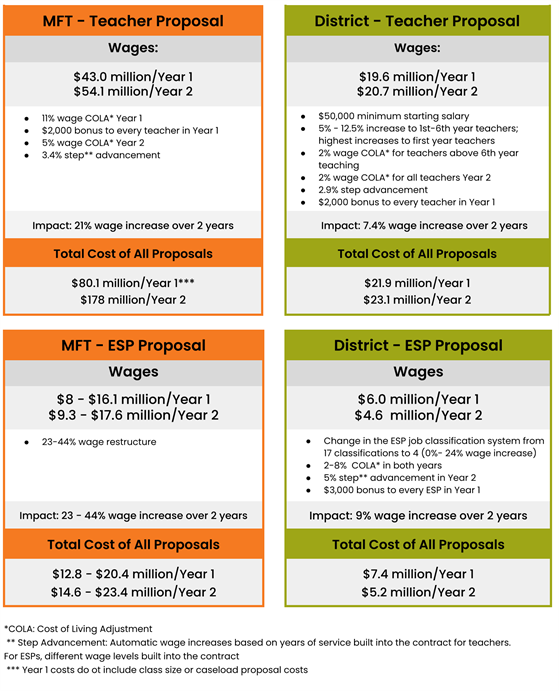Mpls teachers’ union wants millions more in pay increases
Over 30,000 Minneapolis students have been shut out of their classrooms for five days now, as the Minneapolis Federation of Teachers went on strike on March 10. The union and district have been unable to negotiate a new two-year collective bargaining contract, with wage increases playing a big part in the union’s proposals.
“The Minneapolis Federation of Teachers argues the district’s teacher pay isn’t keeping up with surrounding school districts and that education support professionals, like special education assistants, aren’t earning a living wage,” reports the Minnesota Reformer. “Meanwhile, the district says it supports boosting pay but can’t afford to do so in the face of a projected multi-million-dollar budget deficit.”
Budget issues
The Minneapolis district was $27.6 million in the red before the coronavirus hit and is currently using $75 million in one-time COVID aid to bolster its budget.
Millions of dollars separate the union’s pay proposals and the district’s pay proposals. MFT is pushing for a 21 percent wage increase for teachers over two years, while the district is offering a 7.4 percent wage increase.
Step and lane schedules remain the most common salary structure for teachers. The “steps” in a teacher salary schedule are the number of years a teacher has been teaching, and the “lanes” are the level of education the teacher has. Under union salary schedules, teachers earn automatic raises for each additional year of experience up to the top of the scale and can also earn more money by pursuing additional education credits and degrees. This means that pay increases are built into the salary schedule for the first 20-or-so years of a teacher’s career.
The average annual salary for Minneapolis teachers is $71,535, according to Minnesota’s Professional Educator Licensing and Standards Board (PELSB).
Reform needed
Teacher pay is a hot political topic. But too often the teacher pay debate misses the mark, especially when it is narrowly framed by the assertion that educators are systematically underpaid relative to similar workers, write Frederick Hess and RJ Martin with the American Enterprise Institute.
Are there great educators who are underpaid? Yes. When school budgets are bloated with administrative and support staff, there is less money for classroom teachers. Too much teacher compensation is tied up in benefits, which also shrinks take-home pay, continue Hess and Martin.
But reforms to address these issues, such as overhauling benefits and incorporating merit pay into salary determination, don’t get considered as ways to help address teacher compensation challenges. Instead, inefficient across-the-board pay increases become the default response to the teacher pay debate.
If the union truly wants to serve our students, it will reach an agreement with the district that is within its means and return students to their desks and teachers to their classrooms.
Updated Monday, March 14 at 10:45 a.m.
